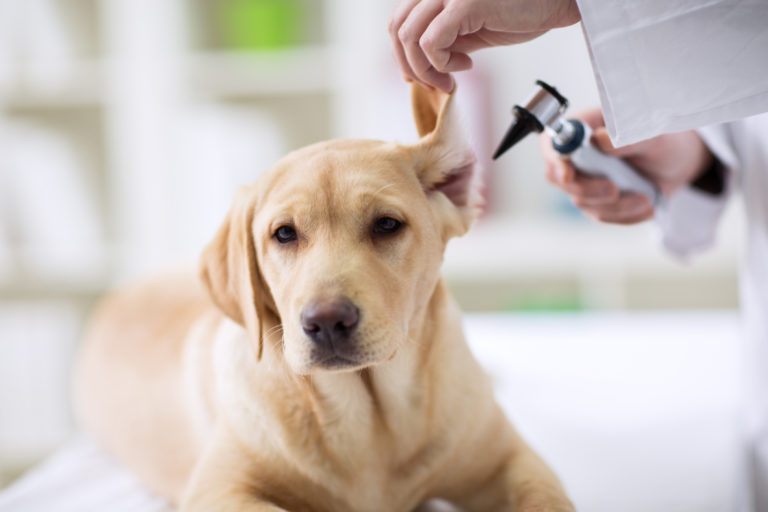Don’t be afraid of the vet!
After a few days of letting your new dog settle in, it is advisable to introduce your newest little family member to the vet. This allows immediate detection of any possible infections or parasites, and allows you to instantly treat any issues.
Tips for the first vet visit
The first visit to your vet is an exciting time and will give you an idea of whether your dog is going to enjoy these visits in future – or not! Book an appointment and arrive on time, so that your puppy does not have to sit around waiting for hours. Take treats with you and give them out generously, to help your puppy associate the vets with something positive, like a biscuit!
Regular worming
Your new puppy will likely have received its first worming treatments and vaccinations from the breeder. Every puppy is given roundworms from its mother, helping it to develop antibodies that can fight off worms in future. As a rule, the puppy will be wormed by the breeder from around its second week of life, and will be repeated every 14 days for the first 12 weeks of life. After this, worming should be done every three to six months, as worms can weaken the immune system and result in possible infections.
Important vaccinations for your puppy
Just as with humans, a dog needs to be vaccinated against common and life-threatening diseases. Until around the 6th week of life, your puppy will still be protected by the natural antibodies present in its mother’s milk, although this protection decreases gradually over time. At the age of 10 weeks, immunisation should begin, generally with a rabies vaccination that is repeated every four weeks. The second vaccination should include the following mandatory vaccinations as a combination vaccine:
- Rabies (required by law)
- Parvovirus (a feline disease that can be transferred to dogs)
- Leptospirosis (Stuttgart Dog Disease)
- Distemper
- Hepatitis (infectious liver inflammation)
The second immunisation of parvovirus, leptospirosis, distemper and hepatitis should be administered again four weeks later. The vaccine protection for the first three is then valid for a year, with distemper and hepatitis lasting for two years. If your dog comes into a lot of contact with other dogs, then a kennel cough vaccination is recommended, to prevent this disease similar to whooping cough. The vaccine for this has been added to the combination syringe, so simply ask your vet about it.
